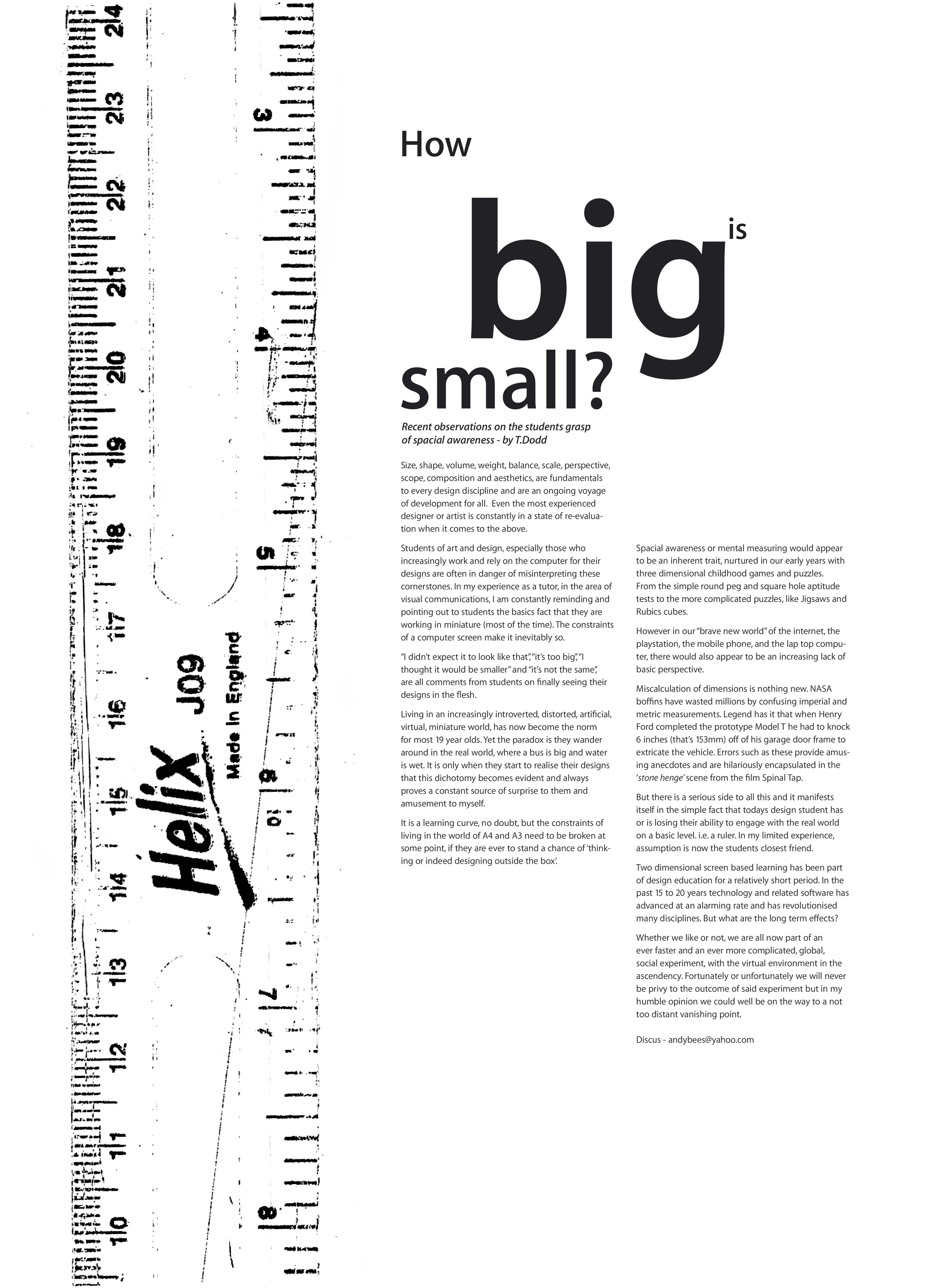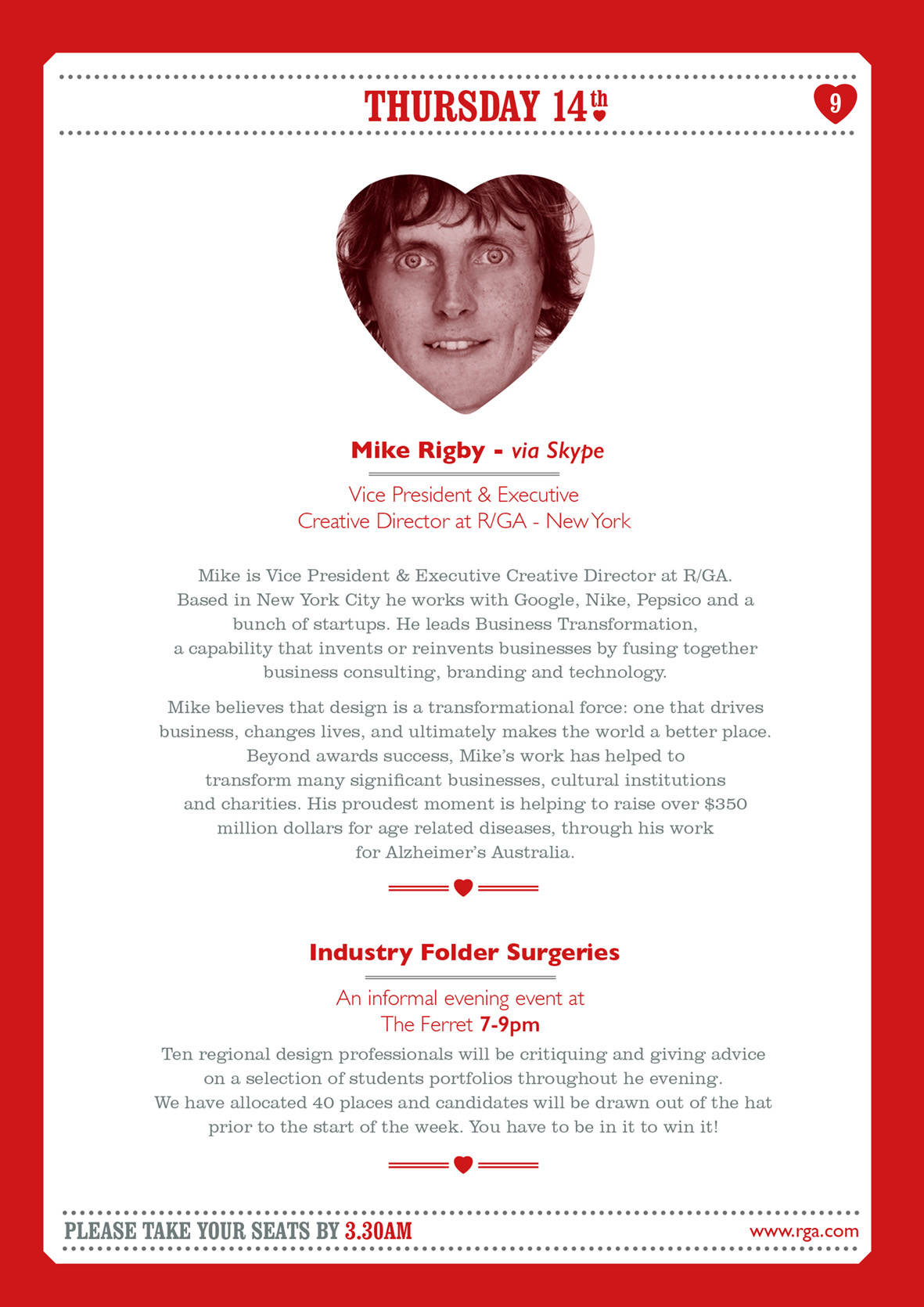Below we feature an article penned by T. Dodd, originally published in 2006, in The Disciples of Design - Issue V.
Recent observations on the students' grasp of spacial awareness.
Size, shape, volume, weight, balance, scale, perspective, scope, composition and aesthetics, are fundamentals to every design discipline and are an ongoing voyage of development for all. Even the most experienced designer or artist is constantly in a state of reevaluation when it comes to the above.
Students of art and design, especially those who increasingly work and rely on the computer for their designs are often in danger of misinterpreting these cornerstones. In my experience as a tutor, in the area of visual communications, I am constantly reminding and pointing out to students the basics fact that they are working in miniature (most of the time). The constraints of a computer screen make it inevitably so.
“I didn’t expect it to look like that”, “it’s too big”, “I thought it would be smaller” and “it’s not the same”, are all comments from students on finally seeing their designs in the flesh.
Living in an increasingly introverted, distorted, artificial, virtual, miniature world, has now become the norm for most 19 year old’s. Yet the paradox is they wander around in the real world, where a bus is big and water is wet. It is only when they start to realise their designs that this dichotomy becomes evident and always proves a constant source of surprise to them and amusement to myself.
It is a learning curve, no doubt, but the constraints of living in the world of A4 and A3 need to be broken at some point, if they are ever to stand a chance of ‘thinking’ or indeed designing ‘outside the box’.
Spacial awareness or mental measuring would appear to be an inherent trait, nurtured in our early years with three dimensional childhood games and puzzles. From the simple round peg and square hole aptitude tests to the more complicated puzzles, like jigsaws and the Rubik’s cube.
However in our “brave new world” of the internet, the PlayStation, the mobile phone, and the laptop computer; there would also appear to be an increasing lack of basic perspective.
Miscalculation of dimensions is nothing new. NASA boffins have wasted millions by confusing imperial and metric measurements. Legend has it that when Henry Ford completed the prototype Model T he had to knock 6 inches (that’s 152.4mm) off of his garage door frame to extricate the vehicle. Errors such as these provide amusing anecdotes and are hilariously encapsulated in the Stonehenge scene from the film Spinal Tap.
But there is a serious side to all this and it manifests itself in the simple fact that today’s design student has, or is, losing their ability to engage with the real world on a basic level. i.e. A ruler. In my limited experience, assumption is now the student’s closest friend.
Two dimensional screen based learning has been part of design education for a relatively short period. In the past 15 to 20 years technology and related software has advanced at an alarming rate and has revolutionised many disciplines. But what are the long term effects?
Whether we like or not, we are all now part of an ever faster and an ever more complicated, global, social experiment, with the virtual environment in the ascendancy. Fortunately or unfortunately we will never be privy to the outcome of said experiment but in my humble opinion we could well be on the way to a not too distant vanishing point.












































































































